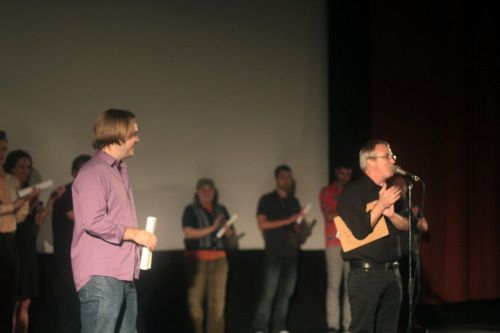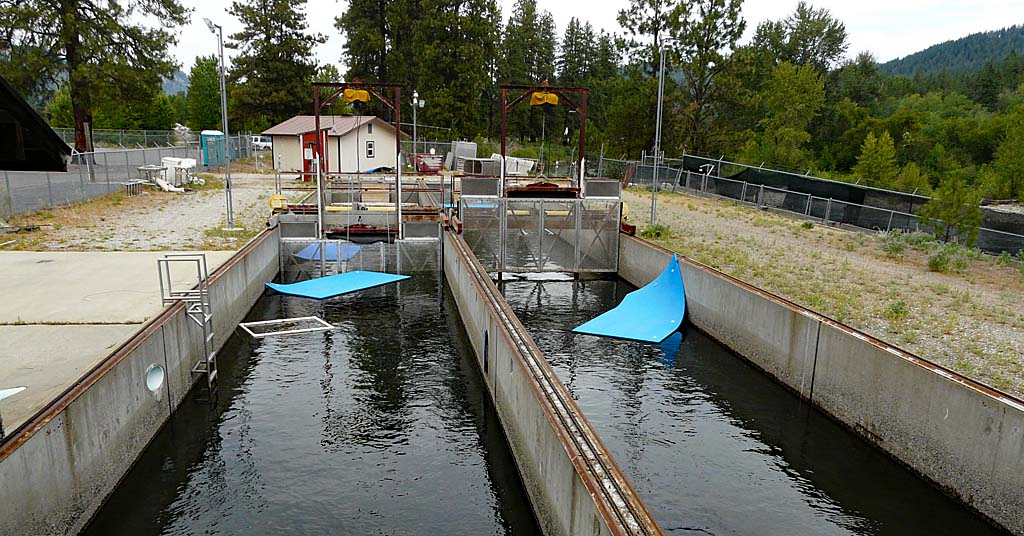48 Hour Film Project Selects Portland Winner
Published 9:26 pm Tuesday, August 28, 2012

- 48 Hour Film Project Selects Portland Winner
![]()
[image: marquee2jpg,right,220×286,503c5f19ec8c9a0005000025]
Trending
Every year for the past 10 years, local filmmakers have chosen to push themselves to the limit during a grueling, two-day, non-stop cinematic workout. The goal: produce a short film in 48 hours or less as part of the global 48 Hour Film Project.
This year, more than 50,000 filmmakers from around the world participated in this international festival and exhibition event, embarking upon one sleepless weekend of scripting, shooting, editing and composing. The result was more than 4,000 films produced by people from all around the globe. Shawn Nelson’s film Bad Time, which followed two police officers on an assignment that took them on a sci-fi, time-travel adventure, took top honors for the Portland phase of the competition.
So just how does this timed competition work?
[image: winner2jpg,right,220×286,503c5f4856ed140005000039]
On a Friday night, the filmmakers get their instructions, which include a few key elements that must be incorporated into each film. These elements are different for every participating city and include a specific character, prop and line of dialogue. Portland filmmakers had to include the character “Gabriel or Gloria Wardell, Instructor,” an iron and the line of dialogue “It takes one to know one” in their scripts. The filmmakers also randomly drew their genre from what Portland Project Director Rob Hatch likes to call “the cruel hat of fate.” The genres included drama, fantasy, silent film, mocumentary, dark comedy, road movie, detective, romance and time travel. The combination of the random drawing and the required elements can result in interesting narrative scenarios. In addition, there are no restrictions as to the number of members who can participate on a production team.
[image: filmfest_rob_lightsjpg,left,220×286,503c5f3b56ed140005000037]
Trending
Earlier this week, Hatch emceed the final screening of the Portland Entries at the Hollywood Theatre, which showcased the best of the more than 50 films that were entered into the competition.
Winner Shawn Nelson has worked on several 48 Hour Film Project teams in the past, and he last led a team in 2005 when he was a finalist.
“It feels pretty awesome,” Nelson says of this year’s win. “I had a huge crew. We had 20-something people. It was the perfect size crew.”
Though not currently working in the film industry for a living, making movies is what Nelson aspires to do. “I’ve been at this ever since 2004, [and] this is absolutely what I want to do,” he says.
Hatch, who has been with the Project almost since it began, has seen both the quality and quantity of the films increase over the years, though the reason may be up for debate.
“It’s really hard to say,” says Hatch. “I think the technology has really made a difference in how the films look. It used to be only the teams that had access to high-end equipment had the really good-looking ones. But now, almost everybody shoots on DSLR so everybody gets that nice, shallow depth of field.”
[image: erichjpg,left,220×286,503c5fb156ed14000500003b]
“The point of all this,” he adds, “is to have a really good time, reach into yourself and see what you can come up with in that amount of time [48 hours] you know, creative problem-solving with a group, and at the end of a weekend have a movie done.”
Participant Erich Demerath, who has produced a film each year of the competition and was Portland’s winner in 2006, agrees. This year he was the team leader and director of the film Jive Genie.
“Preparation is key,” he says. “You’re allowed to secure cast, crew, locations and equipment, so I make sure I have a crack team.” He also described what seemed to be a fairly regimented recipe, calling for a developed idea by Friday at midnight and crew calls by 7 a.m. Saturday.
“It’s a rush. It tests your instincts and it makes you think on your feet,” he says.
The next stop for Nelson and his winning film will be Filmapalooza in Los Angeles, where his movie will go head to head with other films shot around the United States. From there he stands a chance to win $5,000 and see his film screened at the 2013 Cannes Film Festival, along with 12 other films from the nationwide pool.
“I really want to see it at Cannes. I really do, and you know what? I’m feeling pretty good about that,” Nelson says.
This story originally appeared on Oregon Public Broadcasting.









